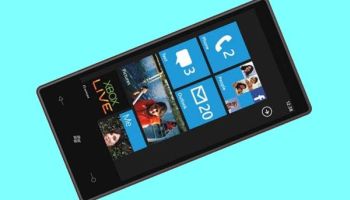Microsoft Woos Developers With Pricier WP7 Apps

Microsoft is reportedly encouraging developers to charge more money for their Windows Phone 7 apps
Microsoft is urging app developers to charge more for their Windows Phone-based apps in an effort to lure frustrated Apple app developers.
“I’d rather developers sell fewer than a million downloads and get to a million dollars,” Brandon Watson, Microsoft’s director of developer experience for Windows Phone, reportedly told a press conference in Helsinki. “If we can support a higher price point that’s good for developers.”
This isn’t the first time that Microsoft’s encouraged higher prices for mobile apps. Back in ye olden days of 2009, company representatives suggested that developers set higher prices for apps for the then-new Windows Mobile 6.5.
Worth More Than That
“We would definitely want to promote that you make more money selling applications than selling your application in a dollar store,” Loke Uei, senior technical product manager for Microsoft’s Mobile Developer Experience Team, told a gathering of mobile-app developers that August. “I know, 99 cents (61 pence) is interesting – yes, consumers like to pay 99 cents for applications.
 “But 99 cents, come on, I think your app is worth more than that.”
“But 99 cents, come on, I think your app is worth more than that.”
Windows Mobile 6.5 – remember that one? – was intended as a market-share placeholder until Microsoft could roll out Windows Phone 7, the first iteration of its next-generation smartphone platform. A huge Windows Phone software update due this fall, codenamed “Mango,” will elevate that version number to 7.5.
Encouraging a higher price for Windows Mobile 6.5 apps may have been Microsoft’s attempt to draw in any developers frustrated with Apple’s App Store, where broad swaths of apps are available for free or 99 cents. In theory, that makes it difficult for developers to build an audience unless they price their wares at the same point – effectively devastating their chance at substantial profits unless they sell in bulk.
However, the continuing success of the App Store – and of Google’s Android Marketplace – suggests that developers have little problem selling their apps for a relatively low price.
Better Quality
Microsoft’s app argument for Windows Phone has centred on the quality of the apps, which supposedly makes up for the platform’s relatively low number at this early stage of life. But Microsoft isn’t betting on apps alone to reverse its fortunes in the smartphone arena, where it’s been pummelled over the past several quarters by Google Android and iOS: the upcoming Mango release will add some 500 new elements to the platform.
Most of those elements, of course, will be tweaks that most users will never see or barely notice. However, a number of top-line features will also be introduced with the update, including multitasking, a redesigned Xbox Live Hub, visual voicemail, the ability to consolidate friends and colleagues into groups within the “People” Hub, and Local Scout, which offers a view of everything to see and do in a particular neighborhood.
For enterprise users, Mango offers some key additions, including the ability to search a server for email items no longer stored to a device, and share and save Office documents via Office 365 and Windows SkyDrive.
In addition to HTC and Nokia, Samsung and LG Electronics have apparently committed to building new Windows Phone devices preloaded with Mango. Acer, Fujitsu and ZTE are also planning to produce Windows Phone devices for the first time. “We have some Windows Mango phones,” HTC CEO Peter Chou reportedly told Reuters 25 May. “We are very committed to Windows phone products.”